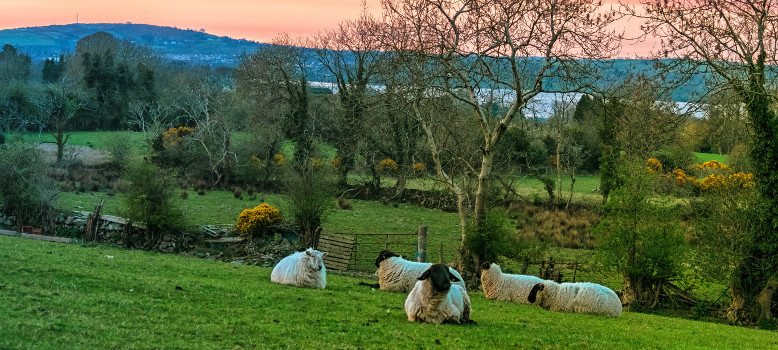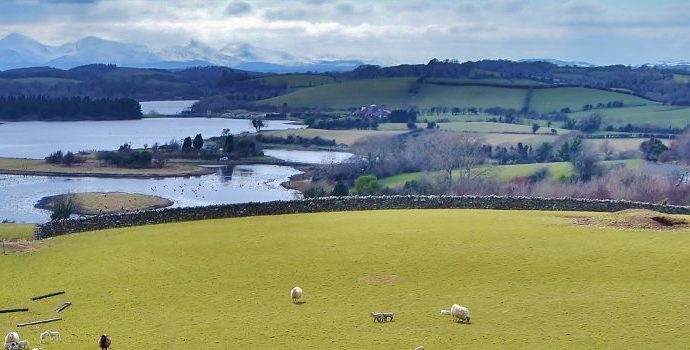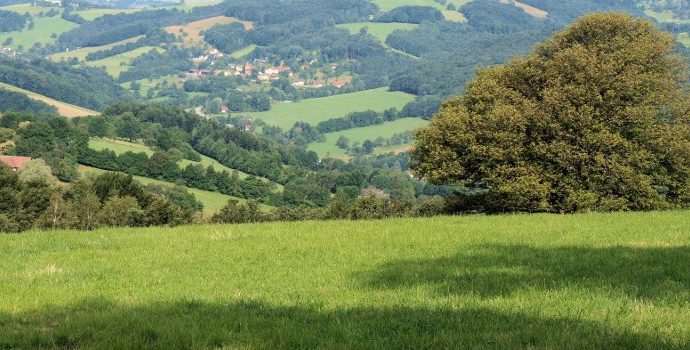CAP Council Report April 2021

Following outcome of CAP negotiations during the week 22-26th March a number of areas of agreement were reached but discussions on the improved targeting of direct payments were inconclusive and Eco Schemes remain open for debate.
The agenda for the CAP SuperTrilogue negotiations on March 26th covered:
(1) All three CAP regulations
(2) New Delivery Model (NDM) which refers to a performance framework instead of the current compliance model
(3) Better targeting and fairer distribution of CAP direct support
Agreed in Trilogues(in principle)
- Biennial Performance review by the Commission of Member State Strategic Plans (2024 & 2026) based on number of defined indicators – Annex I of SPR
- No nationally defined indicators can be used for performance review
- Extent of flexibility(tolerance levels) for duration of agreed CAP Strategic Plan has been agreed for performance review (35% for 2024 & 25% for 2026)
New Delivery Model
- Provision for transparency of (final) beneficiaries
- Use of EU datamining tool – Voluntary for Member States
Common Market Organisation
- A series of measures relating to the wine sector were agreed
Targeting of Direct Support
- Mandatory inclusion of definition of Active farmer – once it is flexible and easy to implement
Not agreed in Trilogues
- Capping Council – Voluntary, European Parliament – Mandatory)
- Redistribution/CRISS (Council – Voluntary, European Parliament – Mandatory)
- Internal Convergence
- Young Farmers(Council 2%, European Parliament 4%, Compromise currently at 3% across Pillars I and II)
- New Farmer – Definition likely to be introduced
- Small holders scheme
The Green Architecture (GA) which refers to higher environmental and climate ambition, eco schemes and enhanced conditionality, were not discussed. Nor was the inclusion of Social Conditionality which Council believes should not be part of the GAECs although the Parliament is strongly in favour.
Meetings
- Super Trilogue negotiations on Friday March 26th included the European Commission, European Parliament and EU Agricultural Council and was attended by both the Agriculture Commissioner Janusz Wojciechowski and the Commission Executive Vice President Frans Timmermans
- IFA(Liam MacHale) attended the COPA CAP working group meeting on 17th March
- IFA met with Minister McConalogue and Department of Agriculture officials on Friday 19th March and raised the following points: Ecoschemes, Convergence, Leased in Entitlements, Carbon Farming, Suckler and Ewe payment schemes, Ireland’s CAP Strategic Plan, F (Wetlands & Peatlands), GAEC 4 (Buffer Strips) and GAEC 10 (Crop rotation).
- Ahead of the Agriculture Council meeting on 22-23rd March, Minister McConalogue concluded by stating that ‘Ireland would maintain the General Approach of the Council and that Ireland would seek capacity and flexibility to maintain our own course.’
- COPA sent CAP lobbying letters to the CAP Trilogue Institution representatives ahead of the negotiations on the CMO (March 24th) and Horizontal Regulation (March 25th) and the SuperTrilogues on 26th March
- IFA President met Minister McConalogue on 29th March during the Sligo AGM.
- IFA will meet with DAFM on 14th April on CAP
Definition of Active/Genuine Farmer
- Tadhg Buckley presented to IFA Council on Friday 5th March on the Active/Genuine Farmer Definition. Agreement was reached on the principles for the definition of Active/Genuine farmer at Council on March 30th. More detailed metrics will now be added to the various criteria (minimum stocking option, minimum output and leasing of entitlements) and debate will continue
Support for Vulnerable Sectors
- IFA held CAP preparatory meetings on 23rd and 26th March developing proposals for the Support for Vulnerable Sectors which were presented and discussed by the CAP Project Team on Monday 29th March. Tadhg Buckley led the debate on Vulnerable Sectors at the IFA Council meeting on Tuesday 30th March and discussions are continuing.
- The Department of Agriculture have committed to completing a draft version of Ireland’s CAP Strategic Plan by June this year which will then be followed by a public consultation in September-October
Conditionality
Conditionality will replace cross-compliance and certain aspects of Greening within the current CAP.
The two elements to conditionality are,
1. Good Agricultural and Environmental Conditions (GAEC’s)
- The GAEC’s set standards for mitigating and adapting to climate change; protecting water quality; protecting soil quality; land management; and protection of biodiversity. Member States will have to define their national standard for each GAEC, detailing their implementation and tailoring them to their specific local needs and characteristics.
2. Statutory Management Requirements (SMR’s)
- The SMR’s link the CAP to EU legislation relating to the environment, food safety, animal identification, health and welfare as well as plant protection products. As the SMR’s are based on EU legislation, there is less scope for Member States to specify their own individual requirements for SMR’s.
Summary of DAFM’s proposed changes to Conditionality (subject to Ministerial agreement) As per Draft Non-Paper on 25/03/21
GAEC 2 – Appropriate protection of Wetland and Peatland
- New GAEC requirements will be introduced for the protection of wetland and peatland (new GAEC). There are a number of issues to be considered relating to the definition of wetland and peatland, mapping and associated GAEC requirements.
GAEC 4 – Establishment of buffer strips along courses
- Currently implemented through the Nitrates Regulations, any further increase in buffer requirements should be targeted at specific areas where losses occur rather than simply increasing overall buffer widths.
GAEC 5 – Use of Farm sustainability tools for nutrients
- Council and Parliament both propose that GAEC 5 should not be included in Conditionality, however the Commission will likely strongly argue for its inclusion.
GAEC 7 – NO bare soil in the most sensitive period(s) except when it is being worked
GACE 8 – Crop rotation in arable land
GAEC 9 – Minimum share of non-productive features and areas on arable land where no pesticides and fertilisers are used
ECO SCHEMES
- Eco-Schemes are proposed for the first time as part of CAP Pillar I. Each Member State will have to develop an Eco-Scheme or multiple Eco-Schemes. As the Eco-Scheme is an annual scheme, associated actions must achieve an environmental/climatic dividend for one year’s participation in the scheme. The Commission advised that multi-annual Eco-Schemes could be considered.
- Each MS will have to establish a list of Eco-Scheme actions. The Commission have issue guidelines/recommendations regarding suitable actions. The Commission has published examples of potential Eco-Schemes. It will also provide some guidance regarding Eco-Scheme payment options. details click https://ec.europa.eu/info/sites/info/files/food-farming-fisheries/key_policies/documents/factsheet-agri-practices-under-ecoscheme_en.pdf
- Annual voluntary Pillar 1 agri-environmental scheme (20-30%) – funded by a linear cut
- An eco-scheme can consist of one or several agricultural practices beneficial for climate and the environment
- Actions must go beyond conditionality/legislative requirements to receive payment
- Payment based on environmental benefit or cost incurred/income foregone
- The Eco-Scheme will reduce each farmer’s existing Direct Payment by a percentage but then be offered back as a flat rate payment per Ha or per action completed will mean that farmers with high value entitlements will likely contribute more than they will be able to receive if there is only one Eco-Scheme.
- Eco Scheme will lead to further convergence if flat-rate payment structure is adopted
- Receiving BISS is not a pre-condition for the scheme. Farmers who are not entitled to the Basic Income Support for Sustainability (BISS), e.g. genuine farmers with eligible area but not payment entitlements can receive support under eco-schemes
- Payment is on eligible hectares only
- Likely to be integrated with BISS application process
- The trilogues process is on-going; the outcome of those discussions will have a significant impact on possibilities regarding Eco-Scheme design
- As the Eco-Scheme is funded within Pillar 1 there is currently no provision to carry forward unspent funds into the next financial year however current proposal by DAFM is that this will be achieved by increasing the rate of aid payable to Eco-Scheme participants.
- In the interest of fairness actions should be designed to reward what already exists on farms,
Convergence
- European Parliament want all the income support to reach at least 75% of the average in each member state by 2024 and 100% by 2026,
- The Council of Ministers have moved on their position that all entitlements reach 75% of the National Average by 2026 and a compromise position whereby all entitlements reach 85% of the national average by 2026 is currently under discussion.
- The original Commission proposal states that by 2026 at latest, all payments entitlements to have converged to 75% of national or regional average entitlement.
- Final decision to come from Trilogues
- IFA is insisting that a full sectoral impact analysis of the convergence proposals be conducted. CAP reform 2021-2027 must not create more unviable farmers.
Next Steps
From Tues April 6th – Technical talks continue in preparation for the Trilogues
April 12th – Special Committee on Agriculture Meeting (SCA) – Member State Delegations meet with Portuguese Presidency. Presentation of outcome of SuperTrilogue meeting.
April 16th – Trilogue on Strategic Plans Regulation
April 21st – Trilogue on Common Market Organisation
April 23rd – Trilogue on Horizontal Regulation
April 26th – Agriculture Council Meeting in Luxembourg (1 day only)
May – Supertrilogue (TBD)
May 31st – Agriculture Council of Ministers meeting (Brussels)
June 7-10th & 23-24th – European Parliament Plenary Sessions
| Tadhg Buckley Director of Policy/Chief Economist | Liam MacHale Director of European Affairs | Denis Griffin Senior Policy Executive | Donal Sheehan Policy Executive |




